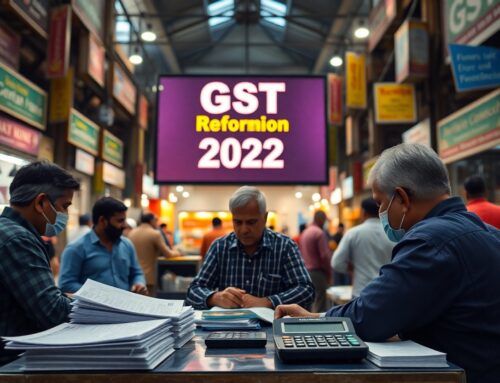– Abul Kalam Azad Sulthan, Advocate, High Court of Judicature at Madras and Madurai Bench of Madras High Court & Partner, Spicy Law Firm
Most businesses can benefit from knowing the intricacies of appealing GST decisions to the First Appellate Authority. This article breaks down the procedure in a clear and concise manner, covering who can appeal, the filing process, authority reconsideration, decision-making, limitations on revision, and timelines involved. Understanding these crucial steps can save businesses time and money, ensuring a smooth appeals process.
Appeal to First Appellate Authority
Who can appeal to First Appellate Authority?
Any person or taxpayer who is dissatisfied with an order passed by an adjudicating authority can appeal within 3 months from the date of the order. This time period can be extended up to 1 month. The appeal must be filed using form APL-01 accompanied by grounds of appeal and a verification form signed by the appellant. If the order against which the appeal is made is not available, a self-certified copy of the order must be provided within 7 days of filing the appeal.
Latest Update: Changes to Rules 108(3) and 109 of the CGST Rules were made through CGST notification no. 26/2022 on 26th December 2022, impacting the procedure for determining the date of filing an appeal and the manner of filing the appeal before the appellate tribunal.
The First Appellate Authority issues a provisional acknowledgment upon application filing, but the appeal is only considered filed once the final acknowledgment with the appeal number is received.
Can the Commissioner appeal to the First Appellate Authority?
First and foremost, yes, the Commissioner can appeal under Section 107(2) read with Rule 109 within 6 months from the date of the order. The appeal date is determined similarly to the process for regular appeals. If the authorized officer makes an application to the First Appellate Authority, it will be treated as an appeal against the order.
It is important to note that the officer examines the record of the order for legality or propriety based on the appellant’s motion or a request from the Commissioner before filing the appeal to the First Appellate Authority.
If the appellant is not satisfied with the decision of the First Appellate Authority, they have the option to appeal to the National Appellate Tribunal, High Court, and then the Supreme Court.
Is adjournment allowed?
On certain occasions, the First Appellate Authority may adjourn the hearing of the appeal if there is a valid reason for doing so. The reasons for adjournment must be recorded in writing, and adjournment is limited to three times.
For instance, adjournment will only be granted if there is a legitimate cause, and the authority will record the reasons for it. However, adjournment is limited to a maximum of three times to ensure timely resolution of the appeal.
It’s crucial for all parties involved in the appeal process to adhere to the specified guidelines and limitations regarding adjournments to maintain the efficiency and effectiveness of the proceedings.
Grounds for Appeal
For businesses appealing to the First Appellate Authority under GST, it is crucial to understand the grounds on which an appeal can be made. The authority can allow an appellant to probe into any ground of appeal which was not earlier specified in the appeal, but only if it deems that the omission was not deliberate.
The decision of the First Appellate Authority can have significant ramifications for businesses. The authority can confirm, modify, or annul the initial decision, but it will not send the case back to the adjudicating authority. Any order that increases fees, penalties, fines, or confiscates higher value goods, or decreases refunds or input tax credits, will only be passed after giving the appellant a reasonable opportunity to present their case. Similarly, any order for payment of unpaid or short-paid tax, wrong refunds, or wrongly availed input tax credits will also require a show-cause notice to be provided to the appellant.
It is important to note that if an appellant is not satisfied with the decision of the First Appellate Authority, they have the option to further appeal to the National Appellate Tribunal, and subsequently to the High Court and the Supreme Court.
Overall, understanding the grounds for appeal is imperative for businesses navigating the complex process of GST appeals and ensuring that they protect their interests and rights throughout the appeals process.







Leave A Comment